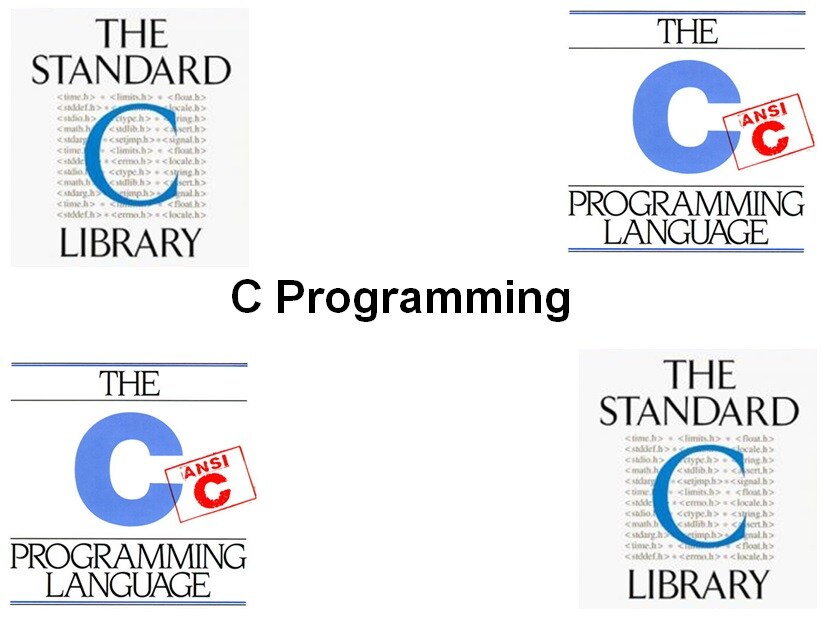-
Learning by doing
-
Trainers with practical experience
-
Classroom training
-
Detailed course material
-
Clear content description
-
Tailormade content possible
-
Training that proceeds
-
Small groups
In the course C Programming the basic principles of the C computer language are covered.
After an introduction about the background and characteristics of C and the function of the preprocessor, compiler and the linker, the program structure of C programs is discussed.
Through a series of coordinated exercises, participants learn to program with the variables, data types, storage classes, operators and control flow constructs of the C language.
Subsequently, the use of functions in C is addressed. It is explained how functions are declared and defined and how parameters are passed to functions. The difference between passing parameters by reference and by value is explained.
Ample attention is also paid to the pointer concept, arithmetic with pointers, the equivalence between pointers and arrays and the use of function pointers.
Next the focus is set on user defined composite data structures such as structures and unions.
Finally, the C standard library is discussed, which includes the treatment of various functions for dealing with file IO, date and time, the manipulation of strings and the dynamic allocation of memory.
Follow up courses for the course C Programming are Advanced C Programming and C++ Programming.
The course C Programming is designed for programmers who want to write programs in C or other people who want to understand C code.
No prior programming knowledge is required to join this course. Knowledge of programming in another language is however beneficial to a quick understanding of the subject matter.
The theory is treated on the basis of presentation slides and is interspersed with exercises. Illustrative demo programs are used to explain the concepts further. The course material is in English.
Participants receive an official certificate C Programming after successful completion of the course.

Module 1 : Intro C Language |
Module 2 : Variables and Data Types |
Module 3 : Control Flow |
|
History of C C Characteristics C Programs Keywords Creating First C Program Compiling and Linking Preprocessor Header Files Creating Executables C Standard Library Basic I/O Comments C Compilers Resources |
Data Types in C Variable Names Data Type Sizes Signed and Unsigned Types Numeric Constants Character Constants String Constants Enumeration Constants Symbolic Constants Type Casting Arrays Multidimensional Arrays Character Arrays Derived Data Types |
Control Flow Constructs Statements and Blocks If Statement If..else Statement Ambiguity of else else-if Construction switch Construction case Statements for Loop Nested for Loop while Loop do while Loop break And continue goto And Labels |
Module 4 : Operators |
Module 5 : Functions |
Module 6 : Storage Classes |
|
Arithmetic Operators In- and Decrement Operators Relational Operators Logical Operators Assignment Operators Bitwise Operators Shift Operators Conditional Operators sizeof Operator Type Conversions |
Library Functions User Defined Functions Calling Functions Function Prototype Function Definition Passing Parameters Call by Value Call by Reference Local and Global Variables Return Statement |
Storage Classes Automatic Variables External Variables Globals with Extern Static Variables Register Variables typedef Scope and initialization Initialization Array Initialization |
Module 7 : Preprocessor Directives |
Module 8 : Pointers |
Module 9 : Structures and Unions |
|
C Preprocessor #include Directive #define and #undef Directive Macro’s with Arguments Macro Gotchas Conditional Inclusion #if #else #endif #elif Multiple Inclusion .h Files #ifdef and #ifndef Predefined Macros __FILE__ __LINE__ |
Variables and Addresses Pointer Declaration Initializing Pointers Pointers to Variables Pointer Dereferencing Pointer Assignment Pointers and Arrays Address Arithmetic null Pointer Pointers to Functions Character Pointers Command Line Arguments |
Structure Definition Variables of Structure Type Accessing Structures Nested Structures Structure Initialization Pointers in and to Structures Structures and Functions Arrays of Structures Bitfield Structures typedef And Structures Unions Type Fields |
Module 10 : Standard C Library |
||
|
File I/O Functions Access Modes File Read and Write Function scanf Function Parameters Operation of scanf Utility Functions Flow Control Functions system Function ASCII to Binary Functions Environment Function Memory Management Functions Time and Date Functions |
